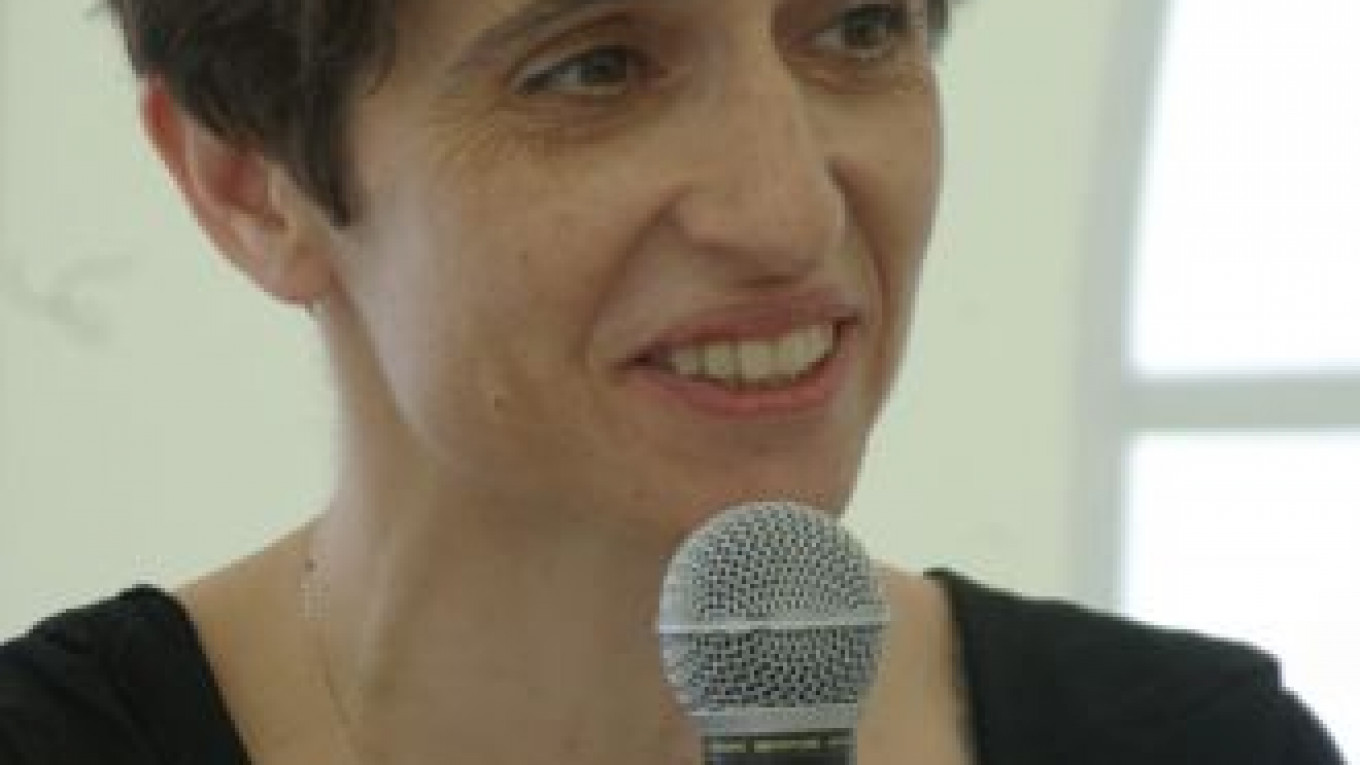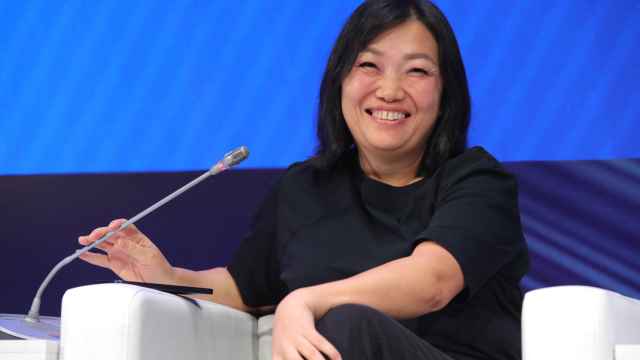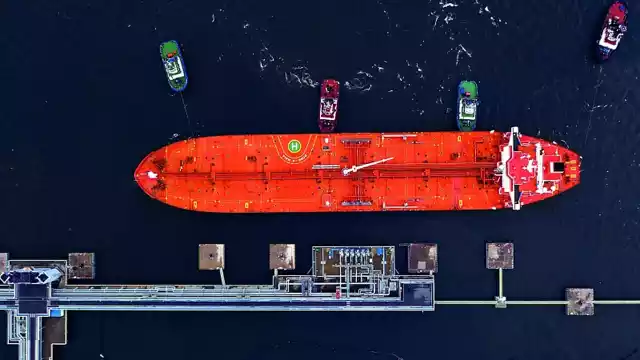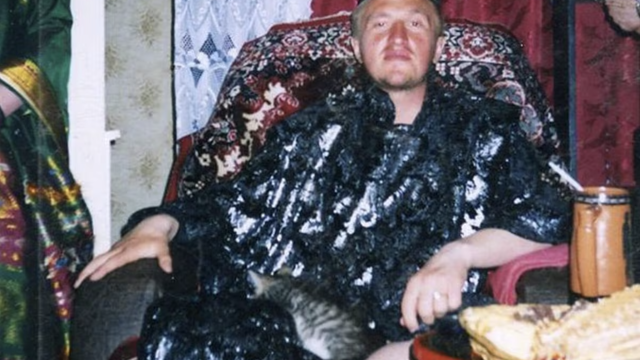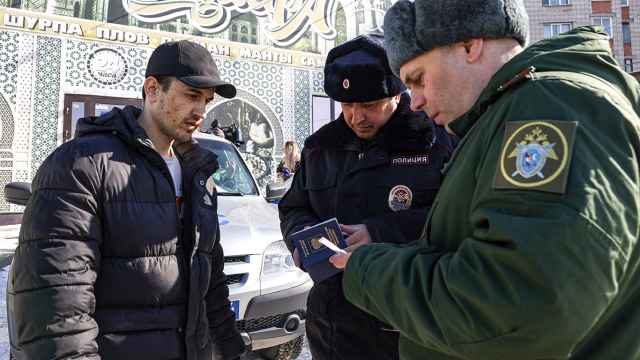President Vladimir Putin invited Masha Gessen, fired as editor of the Vokrug Sveta magazine for refusing to cover his hang-gliding stunt with cranes, to the Kremlin and tried to help her get her job back, but she refused.
Gessen offered a scathing assessment of the most unlikely of meetings, which she said took place Tuesday.
"It was a momentous occasion for me, but it didn't feel like one," Gessen said by telephone. "It just felt like a meeting with a poorly informed, middle-level bureaucrat."
Gessen, an opposition-minded Russian-U.S. journalist, said the meeting was what she had expected after researching "The Man Without a Face," her biting biography of Putin released in March, and she found that disappointing.
Gessen said Putin apparently did not know about her book or her fierce criticism of his leadership before their meeting.
She was initially suspicious when Putin telephoned her to express regret that he had been the cause of her dismissal from Vokrug Sveta on Sept. 3 and to invite her to the Kremlin to discuss it, she wrote in an article published Thursday on the website of the magazine Bolshoi Gorod.
"I'm not opposed," Gessen told Putin. "But how do I know this isn't a practical joke?"
She went to the Kremlin for a scheduled 20-minute meeting with Vokrug Sveta owner Sergei Vasilyev and Putin, who she said arrived two hours late.
Putin described to Gessen his active role in Flight of Hope, a program to lead endangered Siberian storks south for the winter. He said he personally authorized the funding for the program and bought a motorized hang glider to lead the storks south, Gessen said.
Last week, Putin flew in the hang glider on the Yamal Peninsula in a stunt that made international headlines but was boycotted by Gessen.
In July, Vokrug Sveta became the official partner of the Russian Geographic Society, where Putin serves as chairman of the board of trustees. Gessen was appointed editor of Vokrug Sveta early this year.
Gessen complained to Putin during their meeting that animals lose out to him when he poses with them, mentioning previous encounters with a tiger and a polar bear. "Unfortunately, in our country, everything is set up in such a way that if your personal participation is involved, that becomes the focus, and nature must adapt," she told him, according to her article.
Putin agreed that his projects with animals had downsides but argued that he has still managed to draw attention to problems faced by endangered species, she wrote.
He also took credit for subsequent efforts by other countries to help the animals.
"But it was I who thought up those tigers!" Putin was quoted as saying. "Another 20 countries where those tigers live have also started working on this. And I thought up the leopards!"
Putin also proposed to Gessen and her former employer, Vasilyev, that Gessen return to her job as editor of Vokrug Sveta.
"But at a magazine, there should be discipline," Putin told her, implying that Gessen should have fulfilled Vasilyev's request to send a reporter to cover Putin's flight with cranes.
"It's like in the army: When [Russian soldiers] started choosing their officers in World War I, they immediately lost," Putin said.
Gessen told the president that she didn't think a magazine should be run like an army. Then, she wrote, their meeting ended.
Gessen said in her article that she will not return to Vokrug Sveta, "simply because I cannot work at a magazine where Putin appoints the editor-in-chief."
Putin's spokesman Dmitry Peskov confirmed Gessen's account of the meeting. But, he told Interfax, "She wrote that she doesn't want to work [for the magazine] because Putin appoints the editor-in-chief. That's not true."
Correction: An earlier version of this article incorrectly stated that the meeting between Gessen, Vasilyev and Putin took place in a Kremlin cafeteria. In fact, Gessen waited in a Kremlin cafeteria before the meeting, which took place elsewhere in the Kremlin.
Related articles:
A Message from The Moscow Times:
Dear readers,
We are facing unprecedented challenges. Russia's Prosecutor General's Office has designated The Moscow Times as an "undesirable" organization, criminalizing our work and putting our staff at risk of prosecution. This follows our earlier unjust labeling as a "foreign agent."
These actions are direct attempts to silence independent journalism in Russia. The authorities claim our work "discredits the decisions of the Russian leadership." We see things differently: we strive to provide accurate, unbiased reporting on Russia.
We, the journalists of The Moscow Times, refuse to be silenced. But to continue our work, we need your help.
Your support, no matter how small, makes a world of difference. If you can, please support us monthly starting from just $2. It's quick to set up, and every contribution makes a significant impact.
By supporting The Moscow Times, you're defending open, independent journalism in the face of repression. Thank you for standing with us.
Remind me later.


